Filter by

Global governance in a world of change
Global governance began in the mid-nineteenth century and accelerated after the First World War. But it came of age in the post-Second World War era. In response to the lessons learned from the collapse of international order between the wars, and the need to rebuild after the devastation wrought by the Second World War, states, with the USA in the lead, set out to create a new and comprehe…
- Edition
- -
- ISBN/ISSN
- 9781108843232
- Collation
- pages cm
- Series Title
- -
- Call Number
- 341.2 BAR g
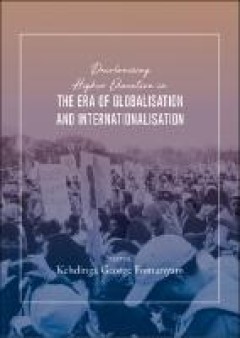
Decolonising Higher Education in the Era of Globalisation and Internationalis…
Conceived within a context of transdisciplinarity and pluriversalism, and in rigorous response to the Eurocentric, globalising and nationalising structures of power that undergird and inhabit contemporary praxis in higher education – especially in African higher education – this collection of essays brings to the on-going discourse on decolonisation fresh, rich, probing and multilayered per…
- Edition
- -
- ISBN/ISSN
- 9781928424277
- Collation
- x, 293p. : ill.
- Series Title
- -
- Call Number
- 378.68 DEC d
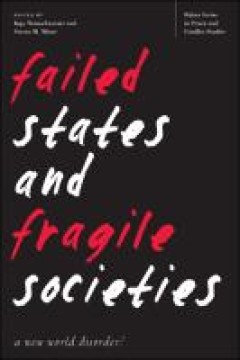
Failed states and fragile societies : a new world disorder?
Since the end of the Cold War, a new dynamic has arisen within the international system, one that does not conform to established notions of the state’s monopoly on war. In this changing environment, the global community must decide how to respond to the challenges posed to the state by military threats, political and economic decline, and social fragmentation. This insightful work considers …
- Edition
- -
- ISBN/ISSN
- 9780821444887
- Collation
- 171p. : ill
- Series Title
- -
- Call Number
- 327.1 FAI f

International perspectives on school settings, education policy and digital s…
An exchange on education ideas has shaped the transatlantic discourse in education for a long time. Over the past two decades education science has increasingly become networked internationally. Since 2015, the Office for International Cooperation in Education at DIPF | Leibniz Institute for Research and Information in Education has organized international sessions on education research at the …
- Edition
- -
- ISBN/ISSN
- 9783847416609
- Collation
- 390p
- Series Title
- -
- Call Number
- 379 INT i
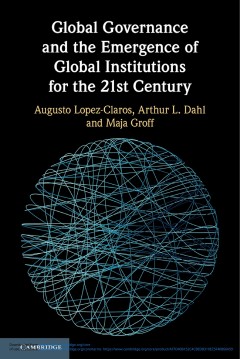
Global governance and the emergence of global institutions for the 21st century
Is there any hope for those who despair at the state of the world and the powerlessness of governments to find a way forward? Global Governance and the Emergence of Global Institutions for the 21st Century provides ambitious but reasonable proposals to give our globalized world the institutions of international governance necessary to address effectively the catastrophic risks facing humanity t…
- Edition
- -
- ISBN/ISSN
- 9781108569293
- Collation
- xiv, 545p. : ill.
- Series Title
- -
- Call Number
- 341.7 LOP g
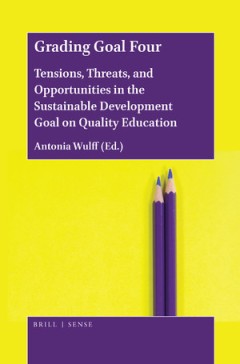
Grading goal four : tensions, threats, and opportunities in the sustainable d…
For the third time in three decades world leaders reaffirmed their promise of "Education For All" when adopting Sustainable Development Goal 4 in 2015. It is the most far-reaching commitment to quality and equity in education so far, yet, there is no consensus on what the agenda means in practice. With a decade left until the 2030 deadline, Grading Goal Four calls upon the education communi…
- Edition
- -
- ISBN/ISSN
- 9789004430365
- Collation
- xxviii, 469 p. : ill.
- Series Title
- -
- Call Number
- 379 GRA g
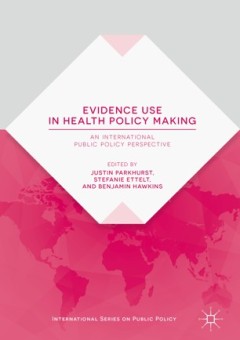
Evidence use in health policy making : an international public policy perspec…
This open access book provides a set of conceptual, empirical, and comparative chapters that apply a public policy perspective to investigate the political and institutional factors driving the use of evidence to inform health policy in low, middle, and high income settings. The work presents key findings from the Getting Research Into Policy (GRIP-Health) project: a five year, six country, pro…
- Edition
- -
- ISBN/ISSN
- 9783319934679
- Collation
- xiv, 245p. : ill.
- Series Title
- -
- Call Number
- 320.6 EVI e
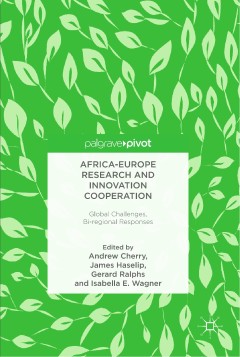
Africa-Europe research and innovation cooperation : global challenges, bi-reg…
This edited volume is concerned with the evolution and achievements of cooperation in research and innovation between Africa and Europe, and points to the need for more diversified funding and finance mechanisms, and for novel models of collaboration to attract new actors and innovative ideas. It reflects on the political, economic, diplomatic and scientific rationale for cooperation, while als…
- Edition
- -
- ISBN/ISSN
- 9783319699295
- Collation
- xxxi, 147p. : ill.
- Series Title
- -
- Call Number
- 507.206 AFR a
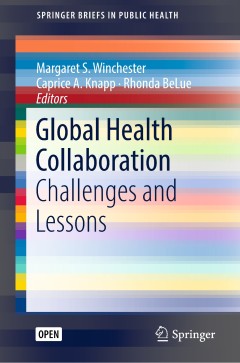
Global health collaboration : challenges and lessons
This stimulating open access volume details the innovative work of the Pan Institution Network for Global Health in creating collaborative research-based answers to large-scale health issues. Equitable partnerships among member universities representing North America, Africa, Asia, and Europe reverse standard cross-national dynamics to develop locally relevant responses to health challenges as …
- Edition
- -
- ISBN/ISSN
- 9783319776859
- Collation
- viii, 107p. : ill.
- Series Title
- -
- Call Number
- 362.1 GLO g
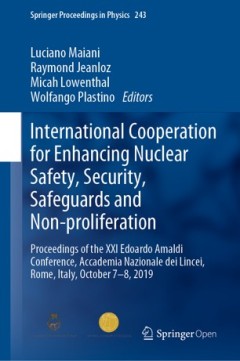
International cooperation for enhancing nuclear safety, security, safeguards …
This open access book examines key aspects of international cooperation to enhance nuclear safety, security, safeguards, and nonproliferation, thereby assisting in development and maintenance of the verification regime and fostering progress toward a nuclear weapon-free world. Current challenges are discussed and attempts made to identify possible solutions and future improvements, considering …
- Edition
- -
- ISBN/ISSN
- 9783030429133
- Collation
- xxxviii, 222p. : ill.
- Series Title
- -
- Call Number
- 621.4835 INT i
 Computer Science, Information & General Works
Computer Science, Information & General Works  Philosophy & Psychology
Philosophy & Psychology  Religion
Religion  Social Sciences
Social Sciences  Language
Language  Pure Science
Pure Science  Applied Sciences
Applied Sciences  Art & Recreation
Art & Recreation  Literature
Literature  History & Geography
History & Geography